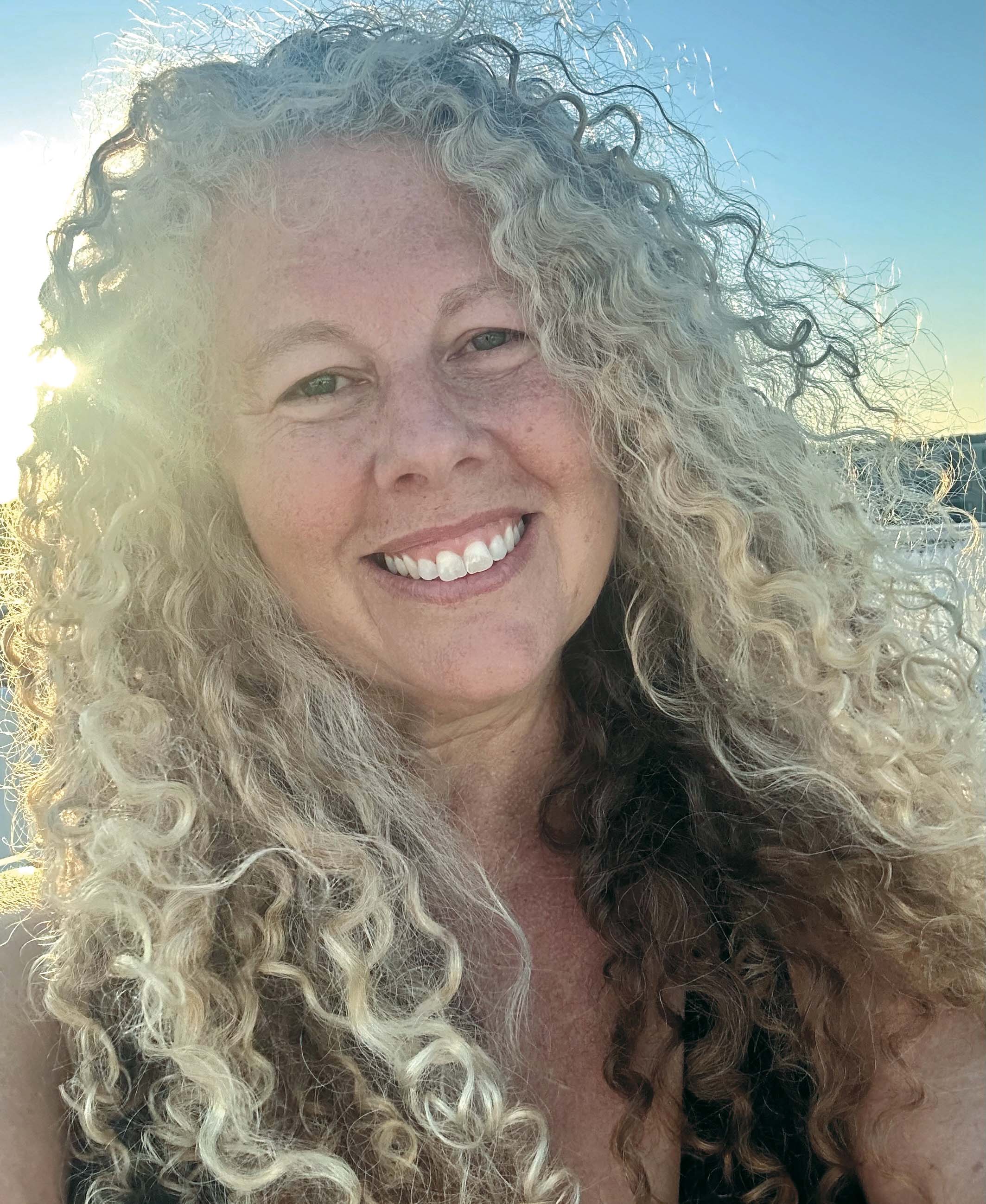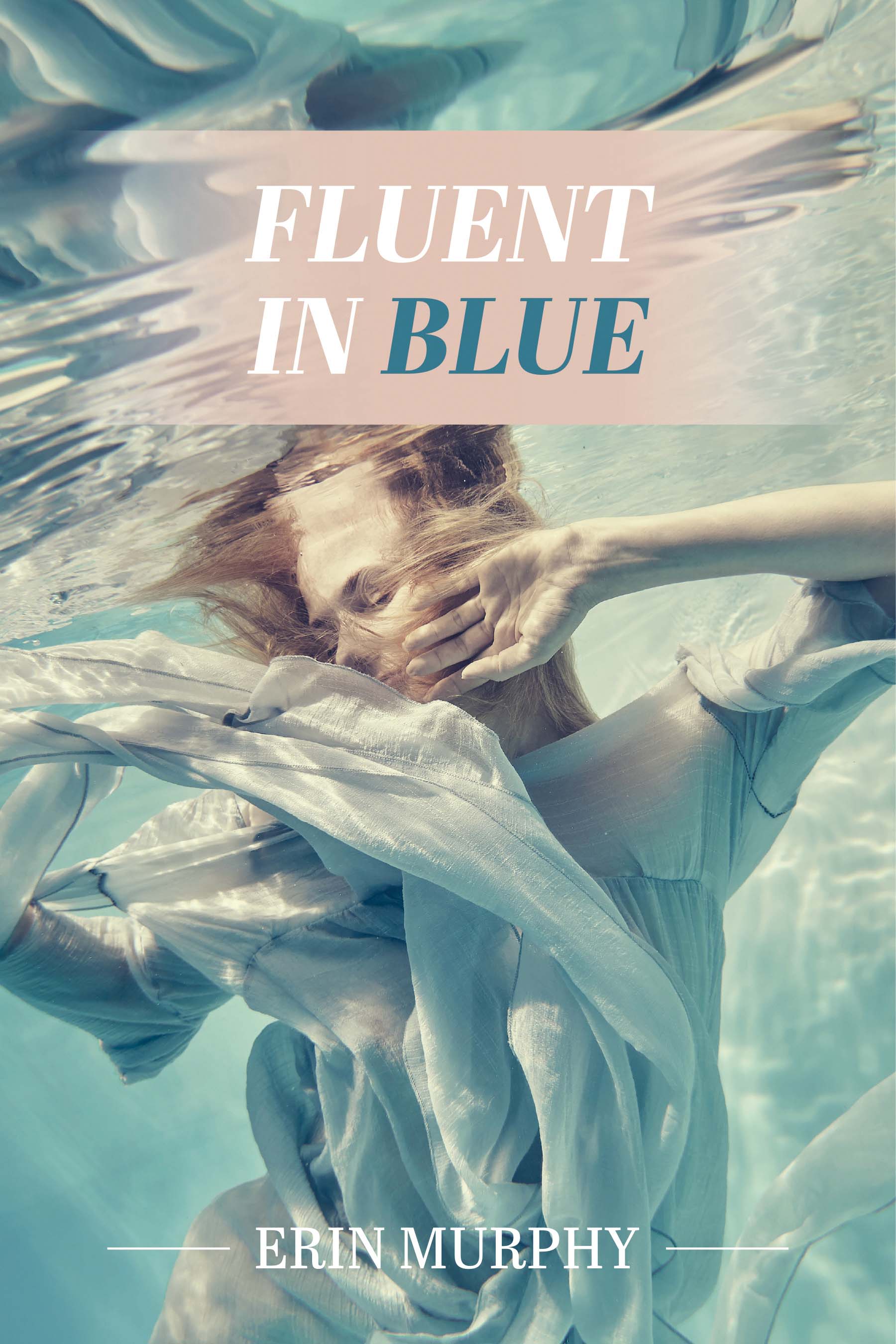Erin Murphy ’90 – The Writer in Blue
Alumna adds to her prodigious and prestigious publications with a new collection of poems, Fluent in Blue.
By Mark Jolly-Van Bodegraven
Erin Murphy ’90 is doing exactly what she wants to do, and what she wants to do is a lot. Now entering her 20th year as a professor, Murphy is also a published author, the poetry editor of a literary journal, and a poetry advocate and ambassador.
“I already have the best job in the world. I’m a poet at Penn State University,” Murphy said. “There is nothing else I’d rather do.”
As a writer, Murphy is prolific. Her ninth full-length poetry collection, Fluent in Blue came out in April, and her 10th will be published this upcoming January. She also has a contract for what will be the fourth anthology she has edited, this one on documentary poetry, and her poems and non-fiction regularly appear in publications like Ecotone, River Teeth, and North American Review.
As a teacher, Murphy offers courses in literary magazine editing, creative nonfiction, medical humanities, poetry, and fiction workshops and takes joy from watching students thrive and hearing how a writing class helped them build skills useful in their eventual careers, often seemingly unrelated to English classes.
“A lot of engineering students, I have found, end up being some of the best poets because they approach poetry writing as problem-solving instead of waiting for inspiration,” Murphy said. “I have a student who recently got his Ph.D. in engineering from M.I.T. He had taken an intro to creative writing class with me, and he credits that class with so much of what he has learned and applied to his engineering field: that ability to make connections about things that don’t seem connected and to describe your project using terms that people can understand to make comparisons. Creative writing really showed him how to do that.”
Murphy is also a literary trailblazer having invented a new poetic form in 2009, the demi-sonnet, that other poets have since adopted. (The demi-sonnet is one seven-line stanza ending in either a whole or slant rhyme. “What’s nice about a demi sonnet is that you have such a limited amount of space,” Murphy said of her creation. “And so sometimes they will hint at a larger story, but it really is an exercise in concision.”) She is also the inaugural poet laureate of Blair County, Pennsylvania, a role that she has embraced to bring poetry to new audiences in new ways. And if these aren’t enough firsts, she is Penn State’s first Mellon Academic Leadership Fellow, part of a program in the Big Ten Conference intended to help elevate promising scholars in the humanities to administrative roles in higher education.
While the demi-sonnet may be the most impactful of Murphy’s literary innovations and the fellowship the most recent evidence of her impressive career as an academic, her work as Blair County poet laureate, in some ways, best reflects the values that shine through in her poetry. In that role, she has tried to reach and encourage new audiences for poetry by giving readings at libraries and community centers and running workshops in K-12 schools.
She has also undertaken more unorthodox projects to bring poetry to a larger audience, creating a broadside to give out to attendees of a local women’s conference and creating a program called Life Lines in which college students interview residents of senior communities and then write poems about those residents’ lives. It’s a project that reflects Murphy’s appreciation for the intersection of poetry and journalism, which she traces to growing up in a Richmond, Virginia, household that subscribed to two newspapers—a morning and an evening publication—and to a first job after earning her Master of Fine Arts that she still remembers fondly: working at the Cecil Whig, the newspaper based in Elkton, Maryland.
“In my poetry, I do bring a lot of those different interests together, especially in the documentary poetry,” Murphy said. “And in teaching, I get to have all the best parts of the things that I’m interested in. I feel that I have something to share with the students.”
Most of that naturally comes from a varied career stretching over 30 years, but Murphy also credits experiences at Washington College with influencing her approach to teaching and to the literary world generally. She graduated with an English degree, and after earning her MFA, she taught at Washington part-time for five years while serving as the executive director of the Cecil County Arts Council. As an undergraduate, she was a work-study student at the Washington College Rose O’Neill Literary House, where she later served as an acting associate director for a semester while teaching at the College.
“That prepared me for a lot of the administrative work that I’ve done over the years, including at the arts council in Cecil County and in academic administration,” Murphy said. “Helping to organize a lot of those readings as an undergraduate just gave me a behind-the-scenes experience that is helpful in the literary community. With my students, of course, the primary focus is on the writing itself, but I also try to introduce them to the business side of writing, which is submitting your work, revising your work, and performing your work.”
Murphy does a lot of public readings and is pleased when she meets people from the larger Washington College literary community at these events. Recently, fellow alumni traveled to Gettysburg, Pennsylvania, and Easton, Maryland, to hear her read. Her most recent appearance was on Oct. 29 at the Misciagna Family Center for Performing Arts at Penn State Altoona. She read from her latest book.
Fluent in Blue is a collection of poems
that are linked by “blue” as a literal or figurative device: blue as a color, blue in the natural world, as political shorthand, musically as in the blues, as in emotion and even mental illness.
“But there’s also joy in the book. I like that range of experience because that’s what our lives are like, right? The range of tone and emotion,” Murphy said. “The idea of being fluent in something is you know it so intimately that you can dream in it. The book focuses on that idea of blue in terms of fluency, words woven into every aspect of life.”
There are moments in the book when her language leaps from the page, demanding attention and delighting in its musicality, whether through internal rhymes, clever enjambments, or, perhaps most often, rhythm.
The cloud bank is a mountain—
no, a continent—in the gun metal
sky and beneath it a cavalry
of trees, mostly oak, limbs rhyming
in Vs. Look closer to see the anarchy
of leaves—some refusing
to surrender even after three nights
of frost. What will it take?
There are also moments of arresting imagery rendered in novel and exacting language: “in a part of Pennsylvania where pickups/fly Confederate flags under a bruised//sky....”
But the real power of this collection derives from the way Murphy relates episodes from her life and the lives of family, friends, and neighbors with attention to both specific detail and how those local or private events intersect with universal concerns.
The poems that focus on individuals—“Sarah,” “Vaughn,” and especially “Poems for My Children’s Friends”—are particularly affecting. They share unadorned stories in simple language that nonetheless draw the reader’s attention to people and events that can feel removed from our day-to-day lives until suddenly they’re not: suicide, overdose, problematic marriages, harassment, fear, politics, murder, gender, racial injustice, and sexuality.
Fluent in Blue is a diverse collection that spans the speaker’s lifetime and includes joyful poems (“That First Summer”), loving family poems from good times and bad, and poems that take thoughtful looks at people who would be easy to judge. (“The Strip Mall of Second Chances” describes a doctor who lost her license for illegally prescribing opioids and works as a cashier at a department store.)
The longer poems use their structure to add resonance and deepen readings, with stanzas referring back to earlier stanzas with new information and new meaning. Throughout the collection, poems connect to each other, sometimes explicitly and often thematically and stylistically, underlining Murphy’s central concerns of justice, linguistic play, individual lives, and the ways those lives intersect, for better or worse.
Halfway into the book, Murphy places “When One Has Lived a Long Time in a Small Town,” a poem that crystallizes many of this collection’s strengths, connecting the townsfolk, events in the town’s history, the speaker’s personal history, and empathy for others through two dozen stanzas that layer on one another, flowing from one to the next while also calling back to earlier moments and setting up resonances later in the poem. Like the collection as a whole, the poem connects the personal and the communal, the private and the public, in ways that suggest our individual lives are inseparable from the lives of others.


